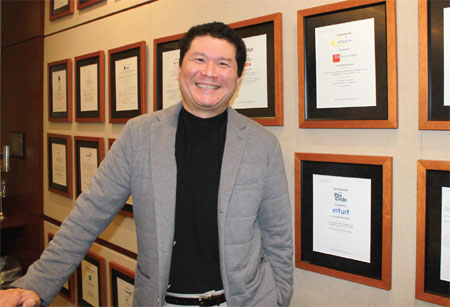David Chao: A businessman with a passion to help
Updated: 2014-03-07 13:21
By Qidong Zhang in San Francisco (China Daily USA)
|
||||||||
|
Venture capitalist David Chao attributes his success to his cross-cultural background as well as good chemistry between the team he leads at his firm DCM in Menlo Park, CA. Qidong Zhang/ China Daily |
The year was 1995, and the time was 5:46 am.
Just as commuters in Japan were starting their journey into work, an earthquake struck Kobe. In the 20 seconds or so that the temblor shook the city of 10 million on Tuesday, Jan 17, more than 5,000 people were killed and 36,000 injured.
The quake also destroyed the home of David Chao's parents in the city in south-central Japan where he was born to a mother from Shanghai and a father from Northeast China.
"Many of our family friends were killed and I went back to Japan to help my parents coming out of a shelter. The usual one-hour bus ride from the airport to my home took 20 hours, and the situation was devastating," recalled Chao. "At that moment I realized life was so fragile, we could die any moment and a person should really do what he wants to do and follow his heart. So I quit my job and immediately started my own business."
Today, his business - DCM, a venture capital investment firm based in Menlo Park, California - manages more than $2.5 billion and since 1999 has invested in over 200 companies across China, Japan and the US.
The company's most known IPOs are Fortinet, Clearwire, Kabu.com, 51job, 58.com, Renren, Dangdang, and Vipshop, the last of which went public in 2012 with a market cap then of $600 million and now more than $7.1 billion.
Chao attributes his success to his cross-culture background, having partners very involved in China, close ties with local partners, and good chemistry between team members at DCM, where he is co-founder and general partner.
Beyond focusing on his business, Chao's passion has been public service, specifically helping Chinese professionals in Silicon Valley as well as China, and Chinese students who study in the United States.
Chao was elected as president of Hua Yuan Science and Technology Association (HYSTA) in 2014, one of the largest engineering associations in North America with more than 7,500 members.
Its mission is explained on its website:
"HYSTA aims to promote entrepreneurship and career development among Chinese professionals in Silicon Valley, and to facilitate networking and exchange of business ideas among successful Chinese entrepreneurs and executives in Silicon Valley and Chinese mainland.
To Chao, an organization like HYSTA gives young professionals the opportunity to get advice from industry leaders, and helps them decide on a career choice.
"Some engineers may decide the corporate ladder is not what they want to climb and choose to be entrepreneurs instead," he said. "They won't know until they talk to those who are experienced and HYSTA is an important and resourceful organization in Silicon Valley to rely on."
"Young people also need role model or guidance when it comes to career, and HYSTA is the perfect platform for them," added Chao.
HYSTA's annual conference is considered a highlight by Silicon Valley's business community. Last year's guest speakers were Jerry Yang, co-founder and former CEO of Yahoo! Inc, and Jack Ma, the main founder of Alibaba Group, China's largest e-commerce business.
Chao said HYSTA's functions have multiplied since its founding 10 years ago.
"It used to be only HYSTA and Asian American Multitechnology Association (AAMA) were available for Chinese and Chinese American engineers in Silicon Valley, but now there are so many other organizations in town. How HYSTA serves as a mother ship and sets example for all others is something to which I would like to devote my effort and time as president of HYSTA this year." he said.
Fluent in Japanese, Chinese and English, Chao came to the US at age 13 and studied at Thacher High School, a boarding school in Southern California.
"It was a fantastic experience. Asian children usually have major culture shock when they land in US middle school or high school from China, but boarding schools like Thatcher is staffed with nurturing teachers, an understanding community supporting international students, and being not super competitive. I had such a wonderful experience there that I want to do something to give it back to the school and the community," said Chao.
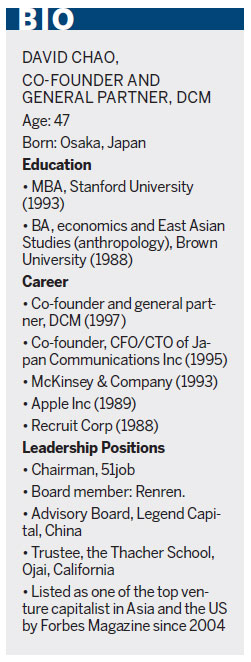
With two of his sons David Jr, 17, and Lukas,14, now at Thacher, Chao also plays an active role in the school's China program, including interviewing and recruiting students from China, and hosting receptions for them.
"I like to invest in young people," he said. "Today many Chinese students come to the US to start middle school and high school. A solid China program at an American middle school benefits students, parents and teachers, and I want to be part of it."
Growing up in Japan in a Chinese family, Chao said there was almost no opportunity for his parents to work for large Japanese companies in those days, which he said planted the entrepreneurship spirit in him at a young age.
However, he followed the traditional path of a typical Chinese family in which parents tell their children to become a doctor as a first career choice. He went to Brown University's medical school, but realized after a year that was not what he wanted. Graduating with an economy and anthropology degree in 1987, he received three offers from Wall Street. But they were withdrawn because the stock market crashed on Oct 19, 1987, known as "the Black Monday".
Without a green card as a foreigner, Chao had to return to Japan where he worked for Recruit, an advertising company, and then took a position at Apple Inc in Japan.
With his Japanese-American wife Amanda Minami, Chao moved back to the US in 1990, and worked at Apple's headquarters in Cupertino, California.
He then went to business school at Stanford University, but when he graduated in 1993 he encountered another bad job market. He eventually became a management consultant at McKinsey & Co in San Francisco and worked there for three years, but the desire to start his own business never left him. He co-founded DCM in 1997 after raising an initial $50 million.
With a dynamic cross-culture background and a belief in globalization in business and humanity, Chao also spends his time as an active volunteer at the Stanford Program on International and Cross-Cultural Education (SPICE). The program supports international elementary and secondary school curricula by linking the research and teaching at Stanford University to schools through the production of high-quality curriculum materials on international themes.
"We live in such a complex global world today and if you pay close attention to daily news, it's a world in conflict everywhere, either China versus the US, Japan versus China, or the US versus the Middle East," he said. "My perspective is the world really cannot afford conflict and we all need to learn, to share and collaborate with each other. The best way is through education at a young age so that mutual understanding of different cultures, history and ethnical background is taught across the border."
Establish in 1976 and housed in the Freeman Spogli Institute for International Studies at Stanford, SPICE has produced more than 100 supplementary curriculum units on Africa, Asia and the Pacific, Europe, Latin America, the global environment and international political economy.
"A good example is the Vietnamese population in the US, which is one of the fastest growing populations. Their number one issue is that when they learn about Vietnam, the only thing mentioned in the textbook is the Vietnam War, there is no mention of its culture and history. What SPICE does is to provide textbook materials for our school teachers to teach Vietnamese history and culture so that they have a good reference choice on education. The same case applies to Chinese, Indian, Japanese and every other ethnical group in the world, which I thought is a phenomenal effort to make a difference to our kids' education," said Chao.

SPICE gives students the opportunity "to learn across borders", he said.
"One curriculum SPICE offers is research on what each country writes in their textbooks. Japanese textbooks tend to interpret World War II in one way, US and China in another way. SPICE helps to create a curriculum that gives students the opportunity to learn what is going on and make their own judgment on what is right, what is wrong, and if it should be changed. And teachers really benefit from it since they now know how to teach from an across border comparison."
Chao said that in a thousand years, maybe there will be a world without borders, where people mingle with each other across culture and history and live in a peaceful world.
"Today we have a lot of mix-culture phenomenon in the US. Our second generation may feel part American, part Japanese, part Chinese, or a part of another ethical race. My responsibility is to contribute to part of their early education so that our younger generation will have knowledge of multiple cultures, learning multiple histories, and basically learning from each other. That's part of the legacy I want to leave to the world other than my passion for technology and my family."
kellyzhang@chinadailyusa.com
(China Daily USA 03/07/2014 page11)
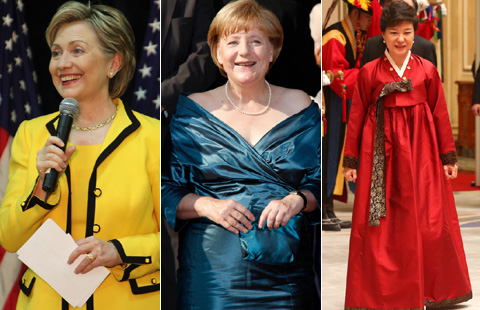
 Fancy dresses of world female leaders
Fancy dresses of world female leaders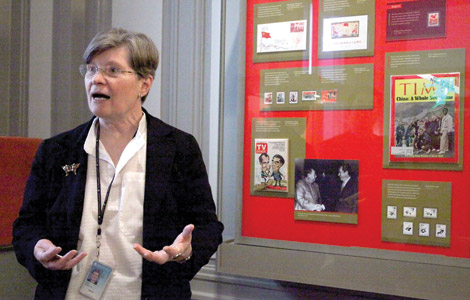
 China-US relations as revealed in stamps
China-US relations as revealed in stamps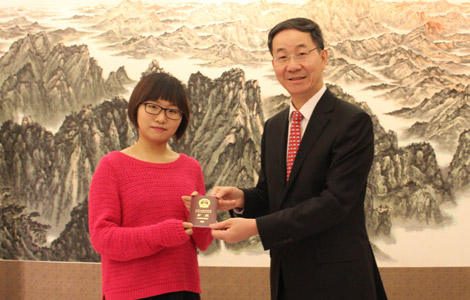
 Electronic passports now available in NY
Electronic passports now available in NY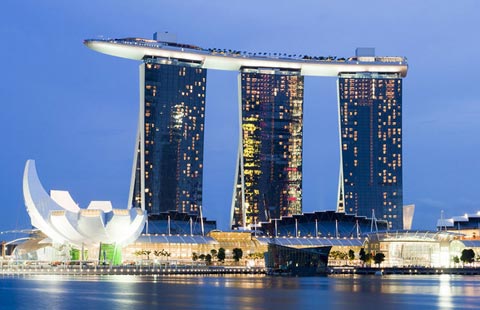
 Top 10 most expensive cities in the world
Top 10 most expensive cities in the world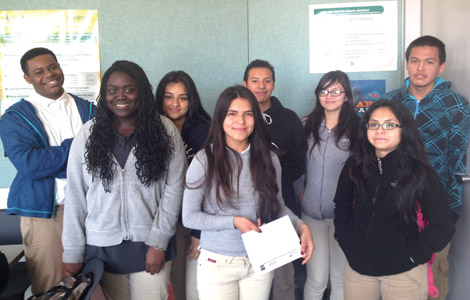
 Ten lucky students off to China
Ten lucky students off to China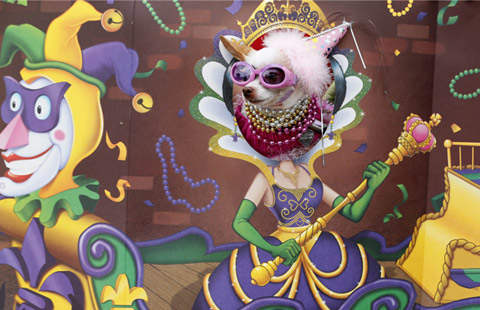
 Doggie Gras Parade Celebration in US
Doggie Gras Parade Celebration in US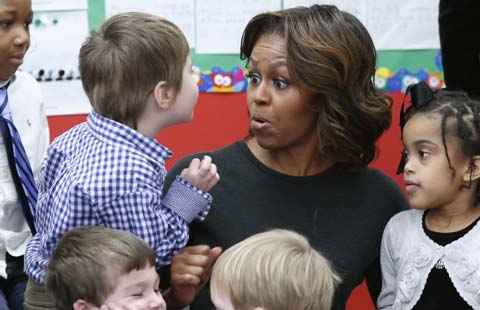
 US first lady preps for China visit
US first lady preps for China visit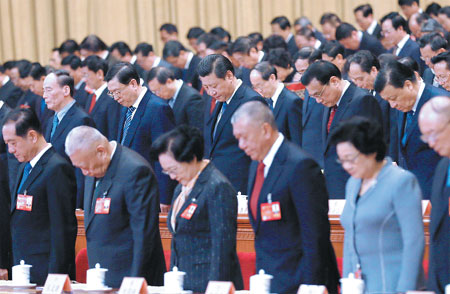
 US: Train depot attack 'terrorism'
US: Train depot attack 'terrorism'
Most Viewed
Editor's Picks

|

|

|

|

|

|
Today's Top News
Crimea referendum would violate law: Obama
US House passes Ukraine aid bill
DPRK missile 'near misses' airliner
Premier Li puts accent on reform
US motor-maker revs up in China
China declares 'war' on pollution
China-US relations as revealed in stamps
E-passport available in NY
US Weekly

|

|
